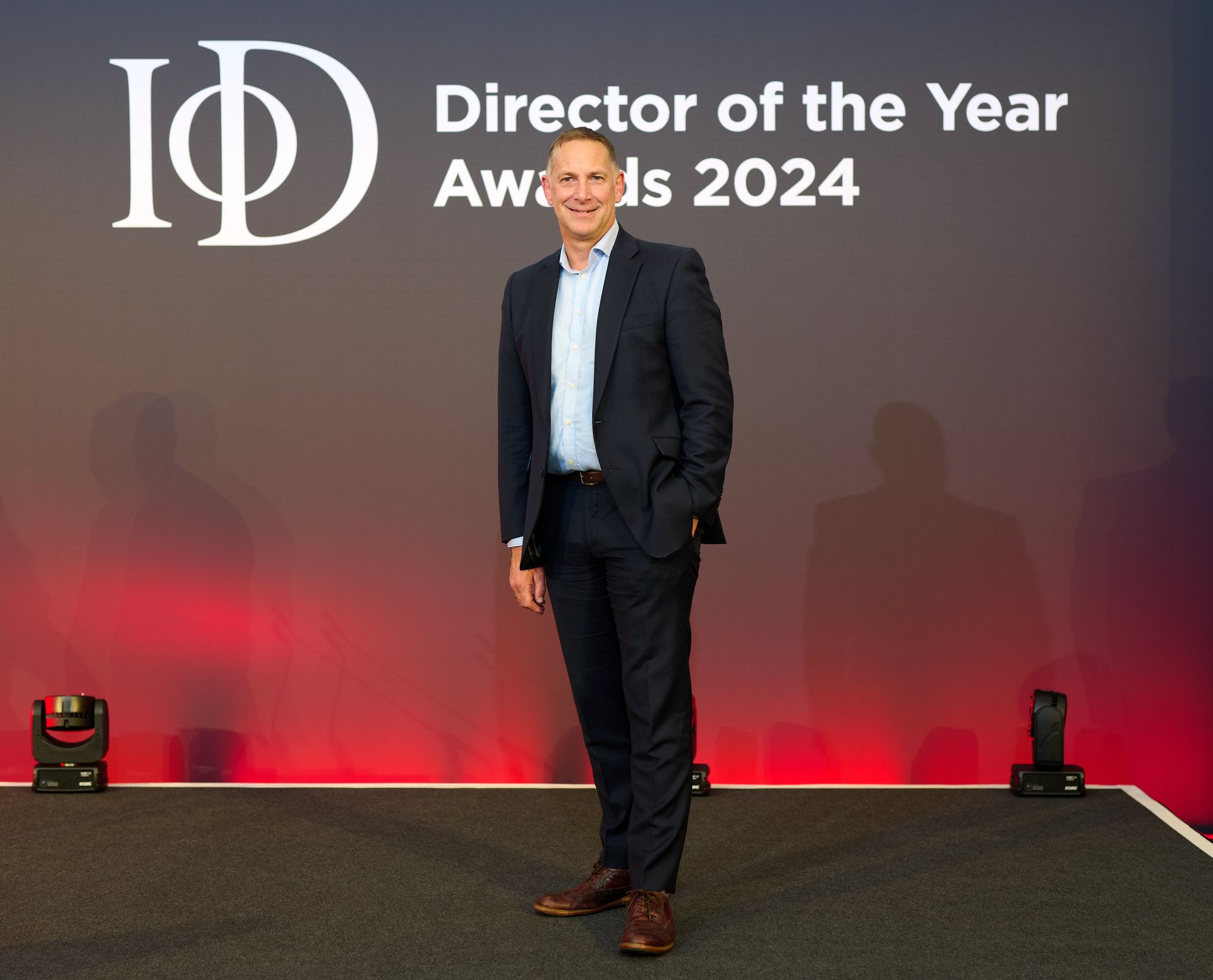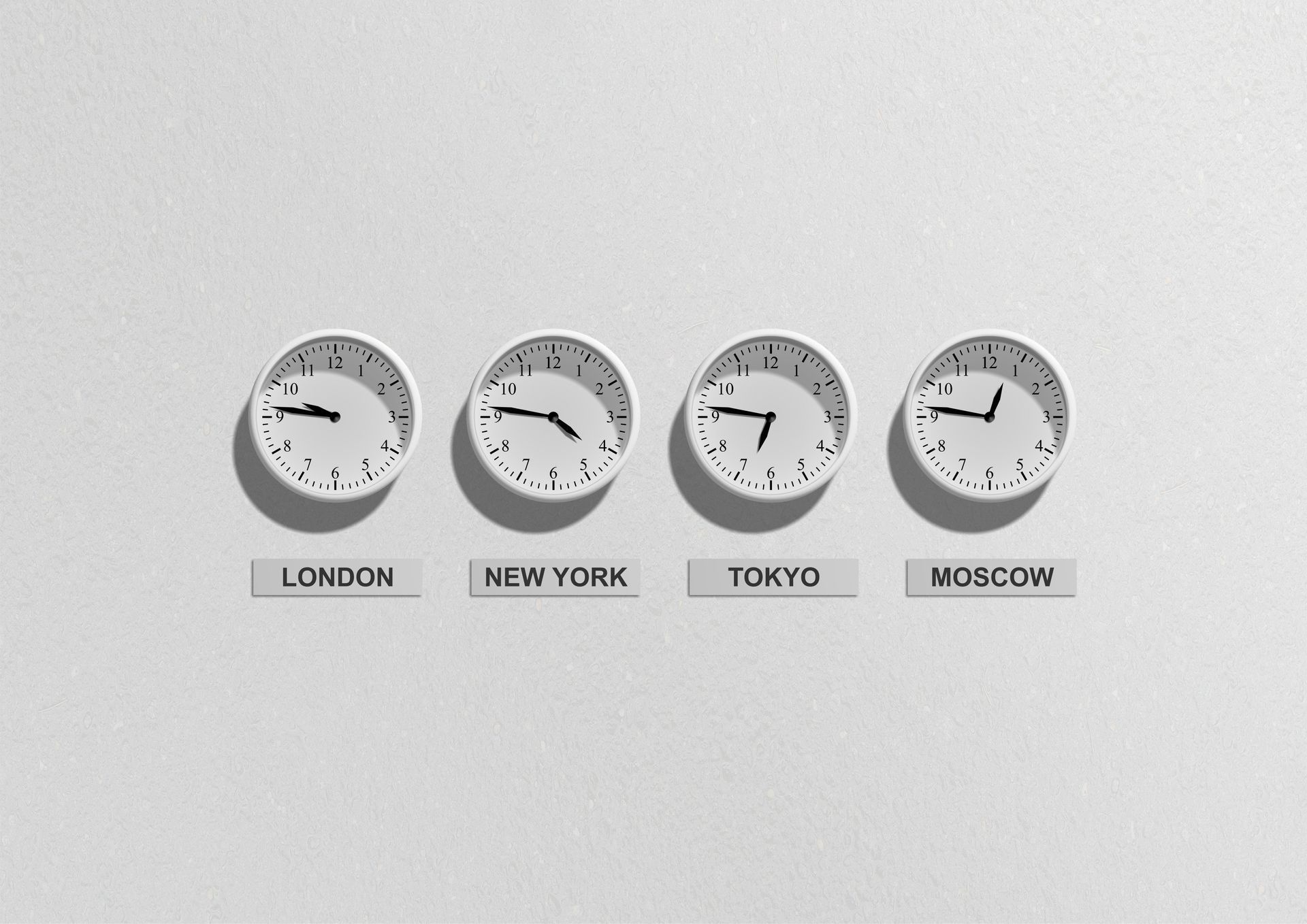In today’s fast-evolving business landscape, agility and expertise are more critical than ever. For UK businesses—especially SMEs and startups—accessing top-tier leadership without the financial burden of full-time executive hires is no longer a pipe dream. Enter the fractional director : a flexible, cost-effective solution that’s reshaping how companies scale, strategise, and succeed. What Is a Fractional Director? A fractional director is a seasoned executive—such as a CFO, CMO, or Commercial Director—who works with a business on a part-time, interim, or project basis. Unlike traditional full-time hires, fractional directors bring high-level strategic insight and leadership while offering the flexibility to engage only when needed. The Business Case for Fractional Leadership UK companies are increasingly embracing fractional leadership, and the reasons are compelling: Access to Elite Talent : Fractional directors often come with decades of experience across industries. For smaller firms that may struggle to attract full-time C-suite talent, fractional roles open the door to expertise that would otherwise be out of reach. Cost Efficiency : Businesses report savings of 40–60% in labour costs by hiring fractional executives compared to full-time counterparts This model allows companies to pay only for the time and expertise they need—no overheads, no long-term commitments. Strategic Agility : Fractional directors are adept at hitting the ground running. Whether it’s navigating a growth phase, entering new markets, or managing change, they deliver rapid impact with minimal disruption. Scalability and Flexibility : Companies can scale leadership resources up or down based on evolving needs. This is especially valuable in uncertain economic climates, where adaptability is key. Objective Decision-Making : Operating outside internal politics, fractional directors offer unbiased perspectives and challenge the status quo—often leading to innovative solutions and improved performance . A Growing Trend in the UK The rise of fractional working in the UK is more than a passing trend—it’s a strategic shift. In early 2025, around 5% of UK employees were in interim roles, with many more operating as independent contractors. Why Now? Post-pandemic shifts, economic uncertainty, and the rise of AI-driven automation have all contributed to a rethinking of traditional employment models. Businesses are under pressure to stay lean while still accessing the strategic leadership needed to thrive. Fractional directors offer a way to do just that. As Roei Samuel, CEO of Connectd, puts it: “Fractional leadership isn’t a stopgap. It’s a scalable, sustainable model for the future of work that enables smaller companies to grow smarter.” Conclusion: A Smarter Way to Scale For UK businesses looking to stay competitive, fractional directors offer a powerful blend of expertise, flexibility, and financial efficiency. Whether you're a startup navigating early growth or an established firm seeking fresh strategic insight, fractional leadership could be the key to unlocking your next phase of success. At M4C Ltd , we help businesses connect with the right fractional talent to drive transformation and growth. Get in touch to explore how a fractional director could elevate your business.

In today’s dynamic business landscape, the need for flexible, expert leadership is more critical than ever. Enter the fractional director—a seasoned executive who brings not just valuable skills, deep industry experience, and strategic insight, but also the much-needed capacity to get things done. At M4C Ltd, we believe that fractional directors are the secret weapon for businesses ready to accelerate growth and drive meaningful change. The Dual Value Proposition of Fractional Directors Expertise That Transforms Strategy Fractional directors come equipped with years of experience from diverse sectors. Their wealth of knowledge helps businesses to.. Develop Clear Strategies: They offer an external perspective that cuts through internal noise, crafting clear, actionable strategies. Identify Growth Opportunities: With a keen eye for emerging trends, they can pinpoint opportunities that might otherwise be overlooked. Guide Critical Decision-Making: Their informed advice ensures that every strategic move is backed by data and real-world insights. Hands-On Execution: Bringing Capacity to Your Team While many leaders provide excellent advice, fractional directors are unique in their commitment to execution. They don’t just set the direction—they work as part of your team to make progress happen.. Bridging the Gap: They act as a critical link between high-level strategy and day-to-day operations, ensuring that plans are not just designed but effectively implemented. Immediate Impact: With the ability to hit the ground running, fractional directors offer an immediate boost in capacity, helping your business to overcome operational bottlenecks and speed up project timelines. Cost-Effective Leadership: By engaging fractional directors, companies gain access to top-tier expertise without the overhead of a full-time executive salary. This model is particularly beneficial for SMEs and growing businesses that need robust leadership without breaking the bank. Real-World Success: Making Strategy Work Consider the case of businesses that have partnered with fractional directors during times of transition or rapid growth. These leaders have been instrumental in.. Streamlining Operations: By re-engineering processes, they enable teams to work more efficiently. Driving Revenue Growth: Their strategic interventions have often resulted in measurable improvements in sales and market penetration. Enhancing Team Morale: By providing clear direction and hands-on support, they empower teams to tackle challenges confidently and collaboratively. Why does M4C Champion the Fractional Director Model? Our commitment is to help businesses not just dream big but also achieve their ambitions. We recognize that the modern business environment demands agile, responsive leadership that can balance high-level strategy with day-to-day operational needs. Our fractional directors are dedicated to.. Partnering: We integrate seamlessly with your existing processes to ensure that every strategy is actionable. Focusing on Measurable Outcomes: From boosting efficiency to driving revenue, our focus is on delivering results that matter. Empowering Your Business: By augmenting your leadership capacity, we ensure that you’re never alone in navigating complex challenges. The Bottom Line: Ready, Set, Execute! If your business is ready to unlock new levels of growth and efficiency, it’s time to consider the power of fractional directors. They don’t just offer advice—they roll up their sleeves and work with you to get things done. Let’s turn strategic plans into tangible results together.

The Case For Bootstrapping Your Business: The Path to Profitability and Independence In the vibrant, ever-evolving world of startups, the decision to bootstrap or seek early-stage investment can significantly shape the trajectory of your business. Bootstrapping, the art of building a company from the ground up using personal savings and revenues, often gets overshadowed by the allure of venture capital. However, the benefits of this self-reliant approach are profound and, in many cases, essential for long-term success and sustainability. 1. Complete Control and Ownership One of the most compelling advantages of bootstrapping is the retention of complete control and ownership. When you rely on your own resources, you’re not beholden to investors who may have their own vision or agenda. This autonomy allows you to make decisions that align with your mission and values, fostering a culture that reflects your authentic vision. It’s your business, and you call the shots—an empowering position that can lead to innovative and unorthodox solutions that set you apart from the competition. 2. Financial Discipline and Efficiency Bootstrapping necessitates a stringent level of financial discipline. Every dollar counts, and this constraint drives entrepreneurs to optimize every aspect of their operations. This frugality often leads to more efficient business practices, ensuring that resources are allocated to initiatives that directly contribute to growth and profitability. By focusing on generating revenue early and efficiently, bootstrapped businesses build a solid foundation that can withstand market fluctuations and economic downturns. 3. Strong Customer Focus Without the cushion of investor money, bootstrapped companies must prioritize their customers to generate revenue. This customer-centric approach often results in better products and services, as feedback is directly tied to the company's survival and success. Building a loyal customer base not only drives profitability but also creates a community of advocates who can help propel the business forward through word-of-mouth and organic growth. 4. Sustainable Growth Bootstrapping encourages sustainable, organic growth. Unlike venture-backed startups that may experience rapid, unsustainable growth driven by the need to satisfy investors, bootstrapped companies grow at a pace dictated by their actual performance and market demand. This steady, measured growth often leads to more stable and resilient businesses, capable of weathering industry shifts and economic challenges. 5. Creativity and Innovation Constraints breed creativity. When resources are limited, entrepreneurs are often forced to think outside the box to solve problems and achieve goals. This inventive mindset can lead to groundbreaking solutions and unique market positioning. Bootstrapped companies frequently develop innovative business models and creative marketing strategies that give them a competitive edge. 6. Higher Valuation When a bootstrapped business reaches the point where it’s ready to seek external investment, it often commands a higher valuation. Investors recognize the value in a company that has demonstrated profitability and a viable business model without external funding. This higher valuation means less equity dilution for the founders and a stronger negotiating position. 7. Personal Satisfaction and Confidence Finally, the journey of bootstrapping a business instills a deep sense of personal satisfaction and confidence. The knowledge that you’ve built something from scratch, relying on your own ingenuity and perseverance, is incredibly rewarding. This self-confidence can be a powerful driver for future endeavors and challenges, fostering a resilient entrepreneurial spirit. In conclusion, while seeking early-stage investment can provide a significant cash infusion and resources, bootstrapping offers a unique set of advantages that can lead to a more robust, customer-focused, and innovative business. By embracing the challenges and rewards of bootstrapping, entrepreneurs can build companies that are not only profitable but also aligned with their core values and vision. The path of bootstrapping is not easy, but for those who choose it, the rewards can be immense and deeply fulfilling.

As business leaders, we often think of time as our most valuable resource. We carefully manage our schedules, prioritise our tasks, and try to fit as much as possible into each day. But maybe it's more important to think about our capacity in terms of our energy levels. Our energy levels are affected by a variety of factors, including our physical health, mental state, and the environment around us. Some tasks and activities can be draining, while others can be stimulating and recharge us. In addition, the people we spend time with can either consume our energy or inspire and fuel us. Tasks that require a lot of concentration or decision-making can be mentally taxing and can drain our energy levels. Similarly, tasks that are monotonous or repetitive can be physically and mentally draining, leaving us feeling exhausted and unmotivated. On the other hand, activities that we enjoy or that challenge us in a positive way can be energising and can help us feel more motivated and focused. This can include things like exercise, learning new skills, or spending time with loved ones. The people we spend time with can also have a significant impact on our energy levels. Negative, toxic, or draining people consume our energy and leave us feeling depleted and unmotivated. In contrast, positive, supportive, and inspiring people can fuel us and help us feel more energised and motivated. By paying attention to the tasks, activities, and people that affect our energy levels, we can better manage our energy and achieve greater success in our professional and personal lives. Increased productivity. When we focus on managing our energy, we can better align our tasks with our natural rhythms. By scheduling our most demanding tasks during periods of peak energy and focusing on more low-intensity tasks when our energy is lower, we can accomplish more in less time. Better decision-making. Our decision-making ability is closely tied to our energy levels. When we're feeling drained, it can be challenging to make good decisions. By managing our energy, we can ensure that we're at our best when making important decisions for our business. Improved health and well-being. When we're constantly pushing ourselves to do more, it can take a toll on our health and well-being. By managing our energy levels, we can ensure that we're giving ourselves the time and space we need to rest and recharge. This can help reduce stress, improve sleep quality, and boost overall health and well-being. Greater focus and clarity. When we're feeling energized and focused, we're better able to concentrate on the task at hand. This can help us get more done in less time, and reduce distractions and procrastination. Improved work-life balance. By managing our energy levels, we can create more space in our lives for the things that matter most. This can include spending time with loved ones, pursuing hobbies, or simply taking time for ourselves. Overall, managing our energy levels is a more effective approach to achieving our goals than focusing solely on time management. Even top sport people cannot sustain their energy levels to be in their high performance zone, they have to plan recovery into regimes to ensure they have the energy levels required to peak at just the right moment. Working with M4C Business Leadership and Sales Consulting can help you develop strategies to manage your energy levels and achieve your goals. Contact us today to learn more.

Ever wondered why when you have decided to buy a particular model of car and are awaiting delivery you see lots of similar cars to yours on the road? Here’s the science… The reticular activating system (RAS) is a part of the brain that filters the information we receive from our senses and determines what we pay attention to. The RAS, is a network of nerve cells that serve as a filter for the information that enters our brain. It's responsible for regulating our sleep-wake cycle, our level of alertness, and our ability to focus on important information whilst filtering out distractions. It works by prioritising sensory information based on its relevance to our beliefs, goals and interests. When we set a goal or focus our attention on a particular task, the RAS begins to filter out irrelevant information and amplify the sensory input that is most relevant to our goal. If we believe something to be true our RAS amplifies inputs that confirm our belief. If we know how our RAS works… how can we make it work for us? The RAS is a powerful tool that can be used to improve our focus and productivity, and one way to do that is through the use of positive affirmations. Positive affirmations are statements that reflect positive thoughts, feelings, and beliefs about ourselves and our abilities. By repeating these affirmations regularly, we can train our brain to focus on the positive and filter out negative thoughts and distractions. This can help us stay focused and motivated throughout the day, leading to a more productive and fulfilling experience. To use your RAS and positive affirmations to have a better, day, try the following: 1. Start with a positive affirmation. Choose a statement that reflects a positive belief about yourself or your abilities, such as "I am capable of achieving my goals" or "I am confident in my abilities" or “I can do this” Repeat this affirmation several times to help your brain focus on the positive. 2. Visualize success. Close your eyes and imagine yourself succeeding in a specific task or achieving a goal. This visualization can help activate the RAS and encourage your brain to focus on the actions that will lead to success. 3. Set clear goals. Identify specific tasks or goals for the day, and break them down into smaller, achievable steps. This will help you stay focused and motivated throughout the day, and give you a sense of accomplishment as you complete each step. 4. Use positive self-talk. Throughout the day, use positive self-talk to reinforce your affirmations and keep your mind focused on the positive. For example, if you're feeling stressed, repeat a calming affirmation like "I am in control of my thoughts and feelings" or "I can handle this situation with ease." By using positive affirmations and activating your RAS, you can have a more productive and fulfilling day. M4C can help you develop strategies to improve your focus and productivity, and achieve your business goals. Contact us today to learn more.






